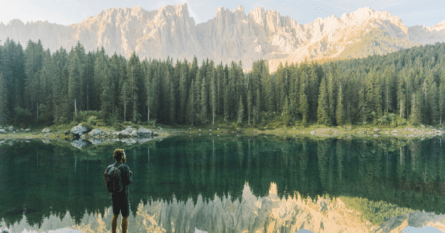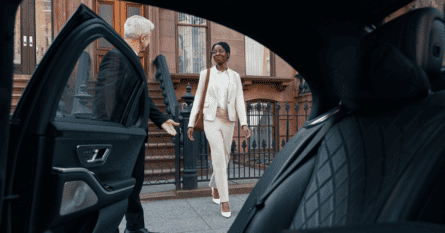A panel at the world’s largest travel trade show in Berlin last week explored how going barefoot and being mindful could improve your next luxury experience.

For decades, luxury hotel experiences were defined by tangibles – think golden bathtubs, heavy curtains, elaborate silverware, and opulent rooms – but now, these things have become standardized across the hotel industry.
So what could the next wave of luxury experience look like? Marc Aeberhard, Owner of Luxury Hotel & Spa Management Ltd, asked a panel, called “Sensuality, Happiness And Luxury”, at ITB Berlin 2019 on Thursday.
“It seems as if we are moving even further (into the intangible) and we are talking sensual luxury, about how to grab our five senses and putting this…into perfection for a luxury experience,” he told a packed crowd of travel industry representatives.
This idea of using sights, smells, sounds, tastes, and textures is not new to the hotel industry, however often times it is either too forced or can go almost unnoticed by the guests.
Dr. Monika Imschloß, Junior-Professor of Marketing and Retailing at the University of Cologne, said hotels needed to tap into creating a type of mindfulness for their guests so they could enjoy the full capacity of the hotel’s services.
“If the mind is not behind (the idea), then I can have the best sensory design strategy and it will go unnoticed,” she said.
Dr. Ha Vinh Tho, Former Program Director of the Gross National Happiness Centre Bhutan was also on the panel and said the mind was the most important part of creating a rounded experience.
“From the perspective of Asian psychology, there are not five senses, but six senses,” he said.
“The mind is the most important one (of the senses) because you perceive as much as the mind is able to focus on the experience.
“We live in a world where our attention is so scattered that really perceiving is not that easy anymore.”

He said the starting point for establishing mindfulness was about slowing down and being present in the moment.
“Coming back to our body experiences is really the door to our senses, otherwise we are just thinking about our senses, not really feeling them,” he said.
“The key issue is how do we help people slow down, come back to themselves and therefore be able to enjoy the depth and beauty of experiences that don’t have to be so extraordinary, but they have to be intensely experienced.”
Dr. Imschloß said she had heard of one hotel where they had asked guests to go barefoot, making guests aware of themselves in their environment and connecting with the present.
“If you go through the reviews of the hotel, you will recognize the customers talk about ‘it was a great view’ and ‘the colors were vibrant’,” she said.
“They have much more sensory memories they can take back home.”

Katrin Herz, General Manager of Al Bustan Palace, a Ritz-Carlton Hotel, told the panel most of the guests who arrive at the Oman luxury five-star hotel want to soak up the beauty of the area and the hospitality of the people when they arrive.
“They want to sit in the lobby and drink coffee for half an hour, they don’t want the key, they don’t want to go up to the room, they want to feel that they have arrived,” she said.
“Although we have all the technical capabilities to check-in online and to have your key on the smartphone, that is not what our guests are looking for.
“There is a lot of pressure on us as hotels to move very fast and use all the technologies, but especially for us, we feel that people want to spend time talking to us.”
She said providing a space for guests to “slow down” was part of creating a luxury experience.
“I think that slowing down (is something) we can really work on,” she said.
“It is probably against some of our corporate initiatives of going fast and using technology, but I think for guests coming to our hotel, that slowing down is part of the experience.”




